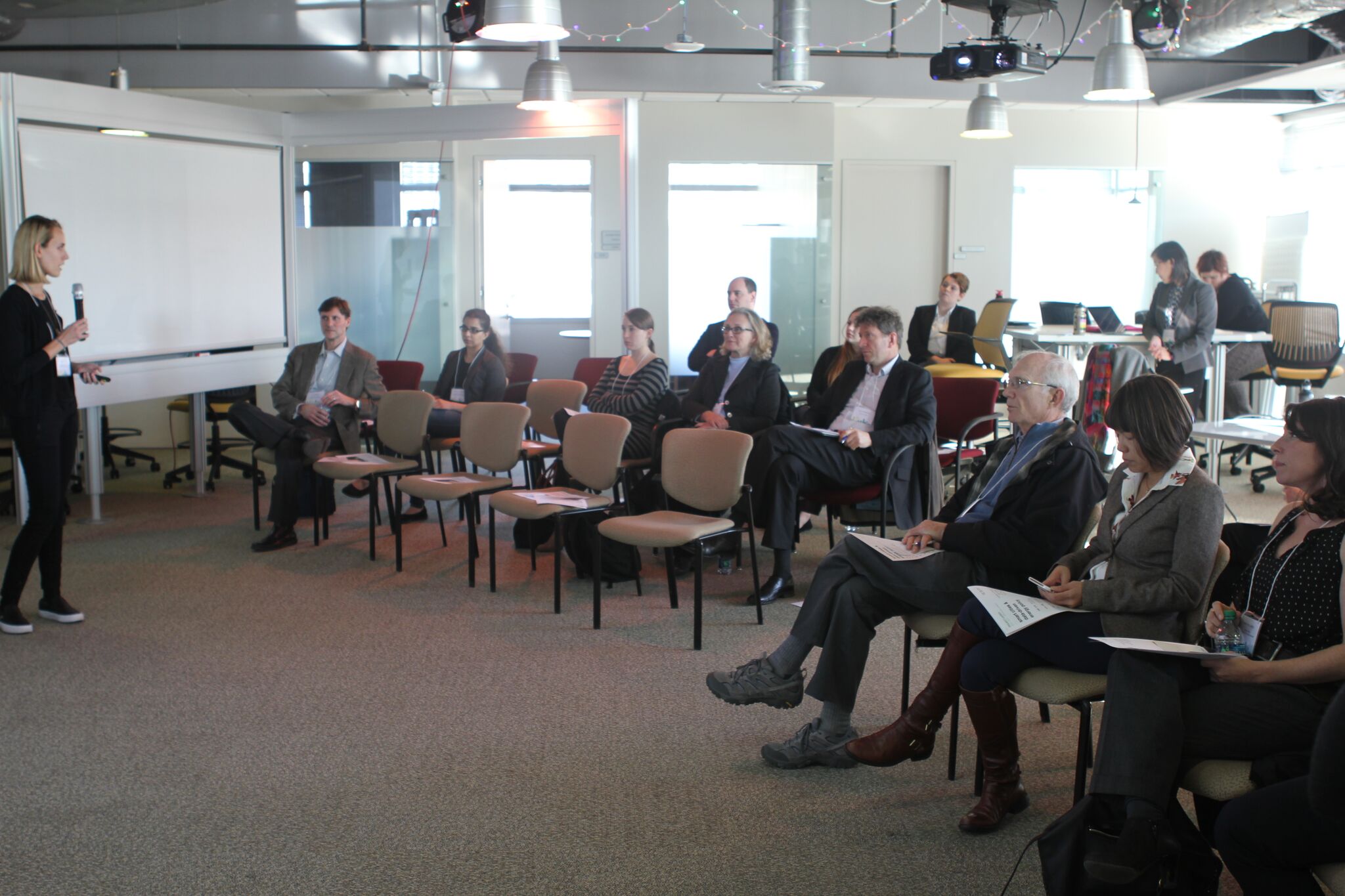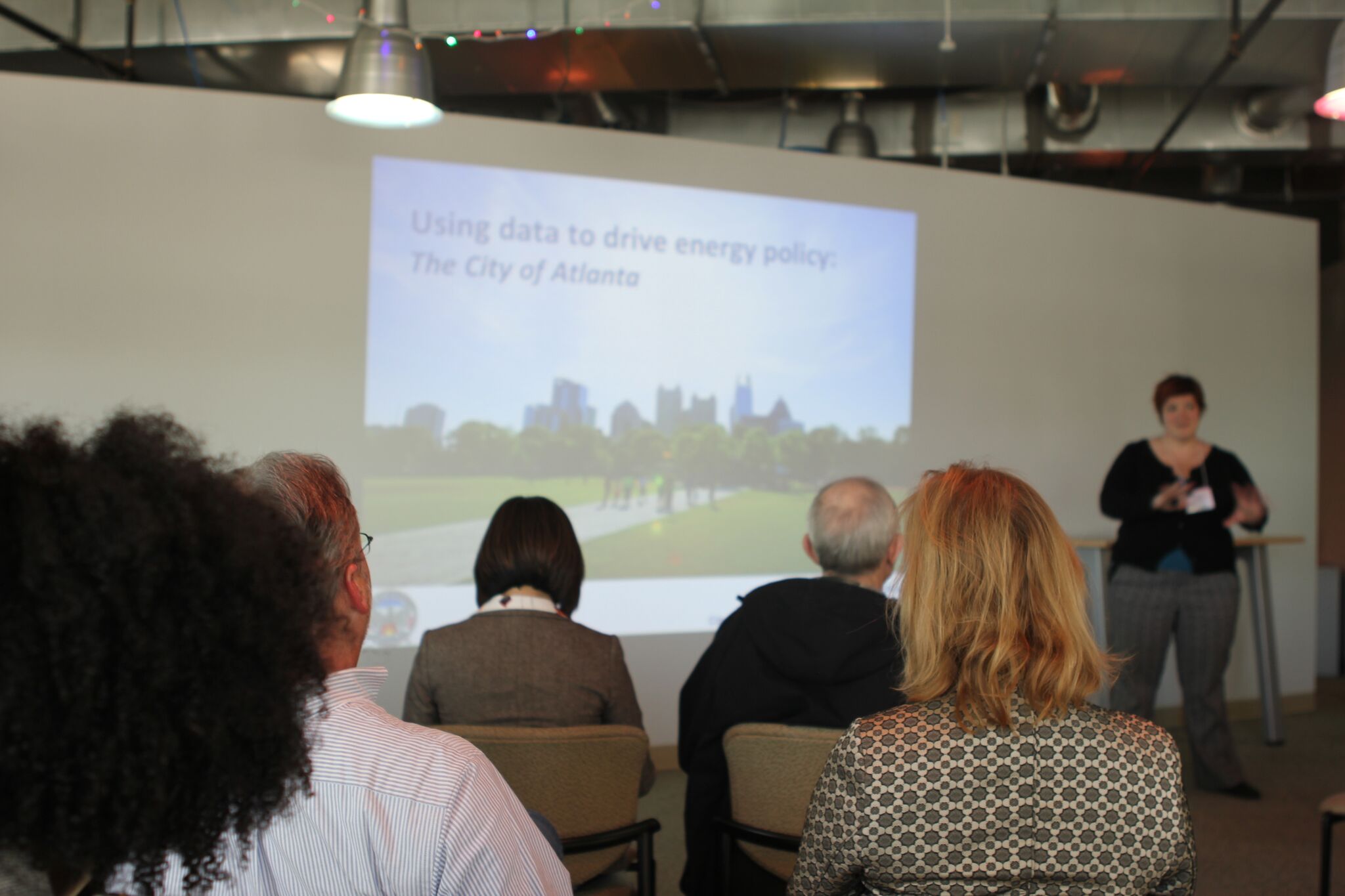Open data is a key ingredient in smart cities. It has the ability, when deployed well and supported properly, to increase government transparency, citizen participation, and economic innovation and growth. Researchers at Georgia Tech are exploring how open data supports smart governance, looking specifically at its use in the creation and implementation of local energy efficiency policies and programs.
The research project, Smart Cities and Data-Driven Energy Policy, was officially launched last week at an event that brought together energy, data and urban governance experts from around the world to share their own insights and learn about Atlanta’s efforts to increase energy efficiency. Local expert speakers at the event included the GreenLink Group’s Chief Technology Officer, Xiaojing Sun, Atlanta’s Energy Programs Manager, Megan O’Neil, and Southface Energy Institute’s program coordinator, Mary Howard.

Having already investigated the work that goes into wrangling data and designing the smart city, the researchers leading this project will explore real-life examples of data-driven energy policy in the Southeastern U.S. in order to better understand the processes that lead from indirect efficiency programs to more formal energy policies at the city-scale.
The project is led by Georgia Tech's Center for Urban Innovation and Smart Cities and Inclusive Innovation initiative in partnership with local public officials and experts from throughout the Southeast. It is funded by Georgia Tech's Strategic Energy Institute's Energy Policy and Innovation Center (EPICenter), which is committed to understanding the processes behind and the approaches to data-driven and evidence-based policy making.

This project is expected to yield insights into the various processes and strategies that are employed to support adoption and implementation of city-scale energy efficiency initiatives, the ways in which data are being used to support the creation and adoption of local energy efficiency policies, and ultimately how such data can be used to advance broader smart city goals.
The research project, Smart Cities and Data-Driven Energy Policy, was officially launched last week at an event that brought together energy, data and urban governance experts from around the world to share their own insights and learn about Atlanta’s efforts to increase energy efficiency. Local expert speakers at the event included the GreenLink Group’s Chief Technology Officer, Xiaojing Sun, Atlanta’s Energy Programs Manager, Megan O’Neil, and Southface Energy Institute’s program coordinator, Mary Howard.

Having already investigated the work that goes into wrangling data and designing the smart city, the researchers leading this project will explore real-life examples of data-driven energy policy in the Southeastern U.S. in order to better understand the processes that lead from indirect efficiency programs to more formal energy policies at the city-scale.
The project is led by Georgia Tech's Center for Urban Innovation and Smart Cities and Inclusive Innovation initiative in partnership with local public officials and experts from throughout the Southeast. It is funded by Georgia Tech's Strategic Energy Institute's Energy Policy and Innovation Center (EPICenter), which is committed to understanding the processes behind and the approaches to data-driven and evidence-based policy making.

This project is expected to yield insights into the various processes and strategies that are employed to support adoption and implementation of city-scale energy efficiency initiatives, the ways in which data are being used to support the creation and adoption of local energy efficiency policies, and ultimately how such data can be used to advance broader smart city goals.
Date